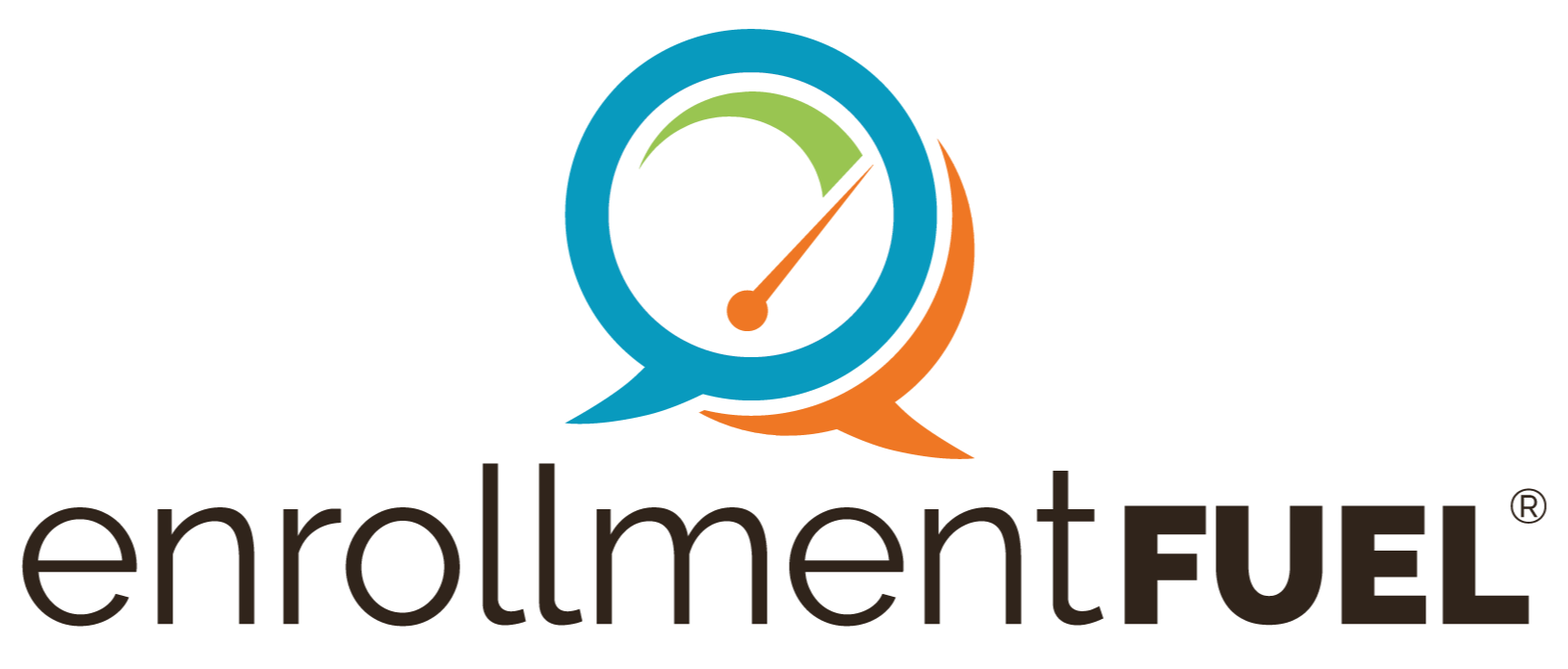6 min read
COACHING PARENTS ON FINANCIAL AID Conversations
As financial aid and admission counselors, who would have ever thought we would be coaching parents on the conversations they have with their students about college finance? Don’t we have enough to do just to get the financial aid in their hands? And, wouldn’t you expect the family unit to be in cahoots on these conversations about the finances of attending college?
In her book, Indebted[1], Caitlin Zaloom interviewed parents about their resistance to talking to students about their financial status. Many said it “just feels weird talking about all this with my teenager.” Seemingly, parents don’t want their kids to feel like a burden, even if it is obvious that debt and a stretched financial pocketbook are looming. And, it isn’t just the parents at fault here—rarely do teenagers push to find answers or ask the hard questions. Zaloom calls these actions and reactions “nested silences.” So, how do we professionally help parents and students move away from nested silences to vested conversations? Here are five great coaching tips to arm you.
1. Research Talks
While parents talk to their students about a lot of things that were taboo just a generation ago—like mental health, the complexities of sexuality, and bullying, finances still remain “hush hush.” A 2019 study from Experian[2] says that of 18-19-year olds, only 58 percent say their parents are financial role models, and an additional 46% say they have unanswered questions about money and feel “uncertain” and “nervous” about their own financial future.
Coaching Tip: Talk with your parents about how these nested silences are actually counterproductive and don’t help students feel safe, but rather the opposite. Cite research like the numbers above, or even better, share a copy of Experian’s research with families as a “takeaway” from your office.
2. The Unfortunate Impact of Social Media
When it comes to social postings, most people want others to see them a certain way that is largely over-exaggerated. Most people post on social media the lavish vacations, new cars, or fancy gadgets they have purchased (mostly on credit), but the psychology of this doesn’t stop students from forming a false sense of reality.
Coaching Tip: Give parents a list of educational electronic outlets like Niche, Higher Ed Geek, or Higher Ed, Not Debt to help correct the realities of finance. This is also the perfect time to talk to parents and students, together, about a budget. Prepare your own budget sheets and give them out, widely. Spend some time in your office talking with families about both savings and debt as you walk through the budget. Help parents feel safe letting their students know debt is okay for the right kinds of purchases. Debt isn’t scary if couched in value.Help parents and students understand the value of higher education. But, be prepared with your value statements. If you don’t have strong value statements, work on creating them with this helpful worksheet.
3. Playing the Catch-Up Game
Many students are behind in their financial literacy. Why? Because most families are not excited to share their earnings with students. That’s okay. Remember, our students need to be focused more on financial concepts like saving, budgeting, paying down debt, and charitable giving.
Coaching Tip: On the most basic level, encourage parents to teach their rising college students to use an app like EveryDollar. This handy tool allows teenagers to track spending habits and see just how far their money is going. Soon, establishing a budget will feel like second nature. If they stick with it, by the time they get to your campus, they will be ready to face the realities of operating within their budget.
If you are really aggressive, consider creating a financial literacy seminar for rising freshmen. It could be as simple as a six-week course where students log in for handouts, blogs, explainer videos, and chat sessions with professionals from your office. Remember, the offer of the service will go a long way psychologically and be a distinctive to your campus in terms of the value proposition, even if students and families don’t “stay with it.” (As an analogy, remember the open house you visited and smelled fresh chocolate chip cookies when you walked in? While there weren’t any cookies in the house, the smell made you feel like this place was home, and it stuck with you!)
4. Framing Conversations
It’s important to find the balance in financial conversations about reality and pressure. Of course, parents don’t want to put undue pressure on their students about the cost of college and the struggles they may face. Remember, many high school students are motivated enough, so heaping pressure on high performance isn’t going to make that much difference if the student has a 3.8 GPA.
Coaching Tip: Don’t let merit aid be a secret. Counsel families and students about what a realistic next bracket might mean in terms of money. For example, if you use a matrix-based award system, and the student has a 3.2 earning $7,000 per year, share with them that if they can get their GPA up to a 3.3, their scholarship would go to $8,500 per year, an additional $6,000 over four years for just a little extra push in the classroom. Always coach the family to frame the conversation around opportunity—the excitement they have about what the family money can do to help the student afford his or her education.
5. It Doesn’t Stop at Freshman Year
Because of the way our financial aid system works at the national level, it’s important to help parents keep conversations about finance going after the freshman year. The conversation doesn’t stop after the student matriculates.
Coaching Tip: While it may seem obvious to us on this side of the desk because we do it for a living, many families are not aware they have to file every year. Educate families and students in conversation about this fact. Create a check-list of things you want to talk to families about in your counseling session. Prepare an actual “agenda” for the meeting. Trust me—this sounds like overkill, but when a family experiences that you have prepared something special for their meeting, it will make you stand out from other schools. Remember value propositions? When paying a large price tag, these small things really add up in the campus visit. They help you be distinctive, and the value for the dollar is evidenced from the first interaction a family has with your school. Even better, the family will leave with their copy of the agenda with notes in hand, so the effect is long-lasting as they pull that out as a reference, later.
In closing, one of the best coaching tips is to ask families right out the gate, “What’s your vision for paying for college?” This allows families to speak more broadly about what they want –and can afford—to contribute without putting expectations on them. This question helps open vested conversations and shatters nested silences. And, just think—if you employ the coaching tips from this blog, you will provide families with research handouts, a list of educational blogs for students, a value proposition that holds up, financial literacy information, a budget tool for students, a realistic expectation about “grades for dollars” and a meeting agenda of talking points that will set your counseling session apart from other schools. Vested conversations for the win!
[1] ZALOOM, CAITLIN. 2021. INDEBTED: how families make college work at any cost. [S.l.]: PRINCETON UNIVERSITY PRESS.
[2] Taken from: Survey: Generation Z Keen on Learning About Personal Finance and Credit – Experian
About the Author
With over 30 years of enrollment management experience, Jacqulyn D. Elliott, Ed.D., brings a passion to her work. She was the chief enrollment officer at three schools, holding cabinet-level positions for over 20 years. She is a subject-matter expert on all aspects of enrollment and qualification campaigns and has consulted for over 90 campuses nationally and internationally. Jacqui is the past editor of the Southern Association of Collegiate Registrars and Admissions Officers (SACRAO) Journal and served on the Board of Directors as Vice President for International Education with AACRAO. In 2019, Jacqui was presented with AACRAO’s 2019 Award of Excellence in International Education. She has given over 200 conference presentations and contributed as an author to multiple books and journals. For the past ten years, she has served as the only female faculty development trainer for the Ministry of Education in Saudi Arabia and is a clinical assistant professor at King Fahd University of Petroleum and Minerals, KSA. She holds a Doctor of Education degree from The George Washington University.
Contact Jacqui at jacqui.elliott@enrollmentfuel.com to schedule a discussion about how we can help you with your Financial Aid conversations.
Related Articles
FAFSA Delays Strategies & Insights for Higher Ed Professionals
The Free Application for Federal Student Aid (FAFSA) is usually the first step for students trying...
Diagnosing Higher Ed Enrollment Issues via Financial Aid Analysis
A lot of enrollment professionals exert energy and effort looking for a silver bullet to solve the...
The Tapestry that is the University – New Weavings in Higher Education
Loughborough University, United Kingdom, April 5, 2016 — Dr. Jacquelyn “Jacqui” D. Elliott recently...




